Thousand fewer UK students at Oxbridge
- Published
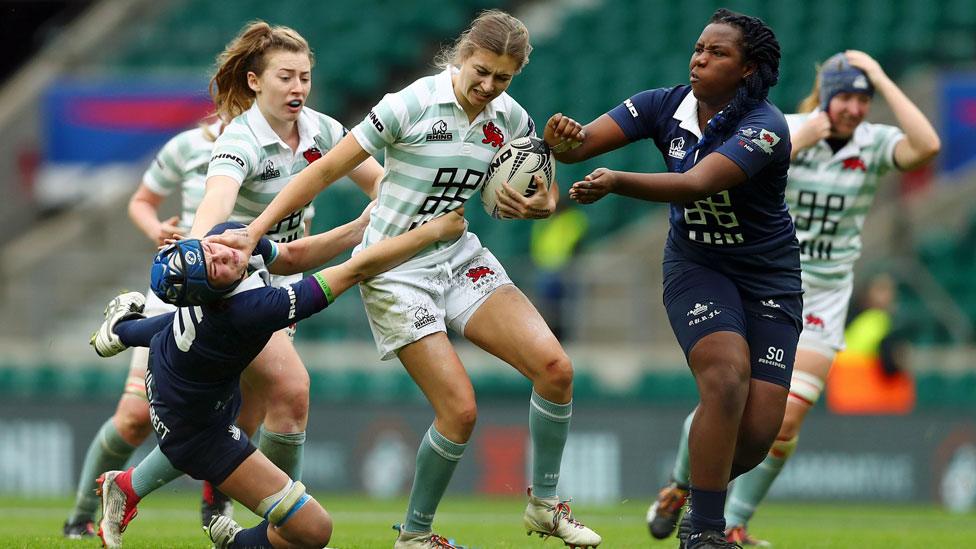
Oxford versus Cambridge: The competition for places for UK students has become even tougher
There are more than a thousand fewer UK undergraduate students at Oxford and Cambridge universities than a decade ago, official figures show.
Student figures from the Higher Education Statistics Agency and from the universities show 7% fewer UK undergraduates at Oxford and 5% fewer at Cambridge, compared with 2007-08.
Overseas undergraduate students rose by 51% at Oxford and 65% at Cambridge.
Oxford says it recruits the "best talent from around the world".
Students from outside the EU pay higher fees and the more prestigious a university and course the greater the cost will likely be - more than £30,000 a year in some cases.
But a spokeswoman for Oxford said its overseas student intake had not been influenced by "the fees they may bring with them".
Fair access
There is intense competition for Oxford and Cambridge places and there has been much controversy about fair access and social mobility.
There have been calls for more places for disadvantaged youngsters, as well as ethnic minority students and white working-class youngsters.
While such arguments have continued about widening opportunities, the total number of UK students being awarded places at Oxbridge has been reducing.
There were about 1,200 fewer UK undergraduates in 2017-18 compared with a decade before - with about 11,300 in Oxford and 12,150 in Cambridge taking undergraduate degree courses, even though more have applied for places.
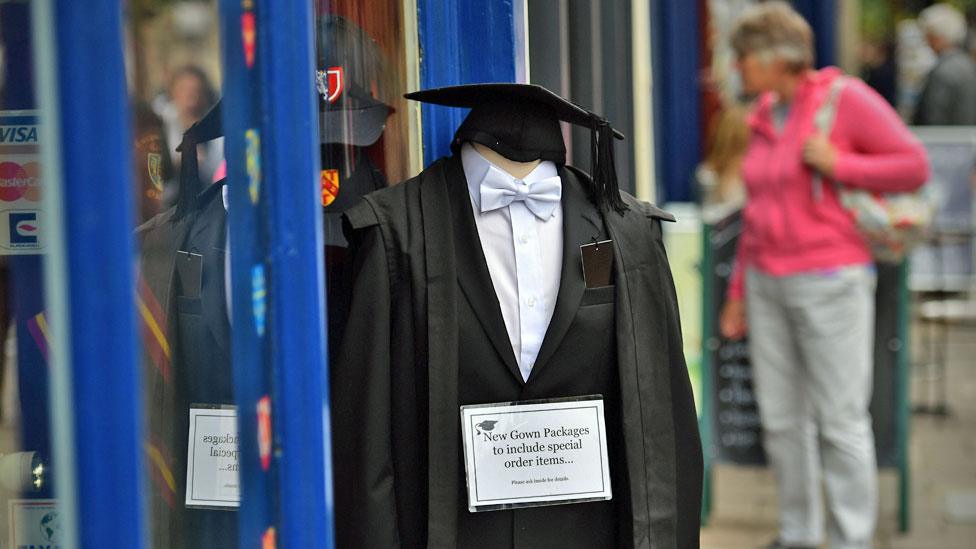
The figures show there were about 720 fewer UK undergraduate students at Oxford University in 2017-18 compared with 2007-08.
At Cambridge, the numbers have fallen by about 480 students across the decade.
But the numbers of overseas students, both EU and non-EU, have climbed sharply, according to the data from Hesa, the official statistics body for higher education.
In postgraduate courses at Cambridge, there are now more overseas students than UK.
'Ability to pay'
Sir Peter Lampl, chairman of the Sutton Trust social mobility charity, said the figures showed the need for the universities to put "widening access at the heart of their admissions policies".
"Oxford and Cambridge attract many international students, but they must ensure that their student body is balanced.
"This means letting in UK and international students based on ability and not on ability to pay," said Sir Peter.
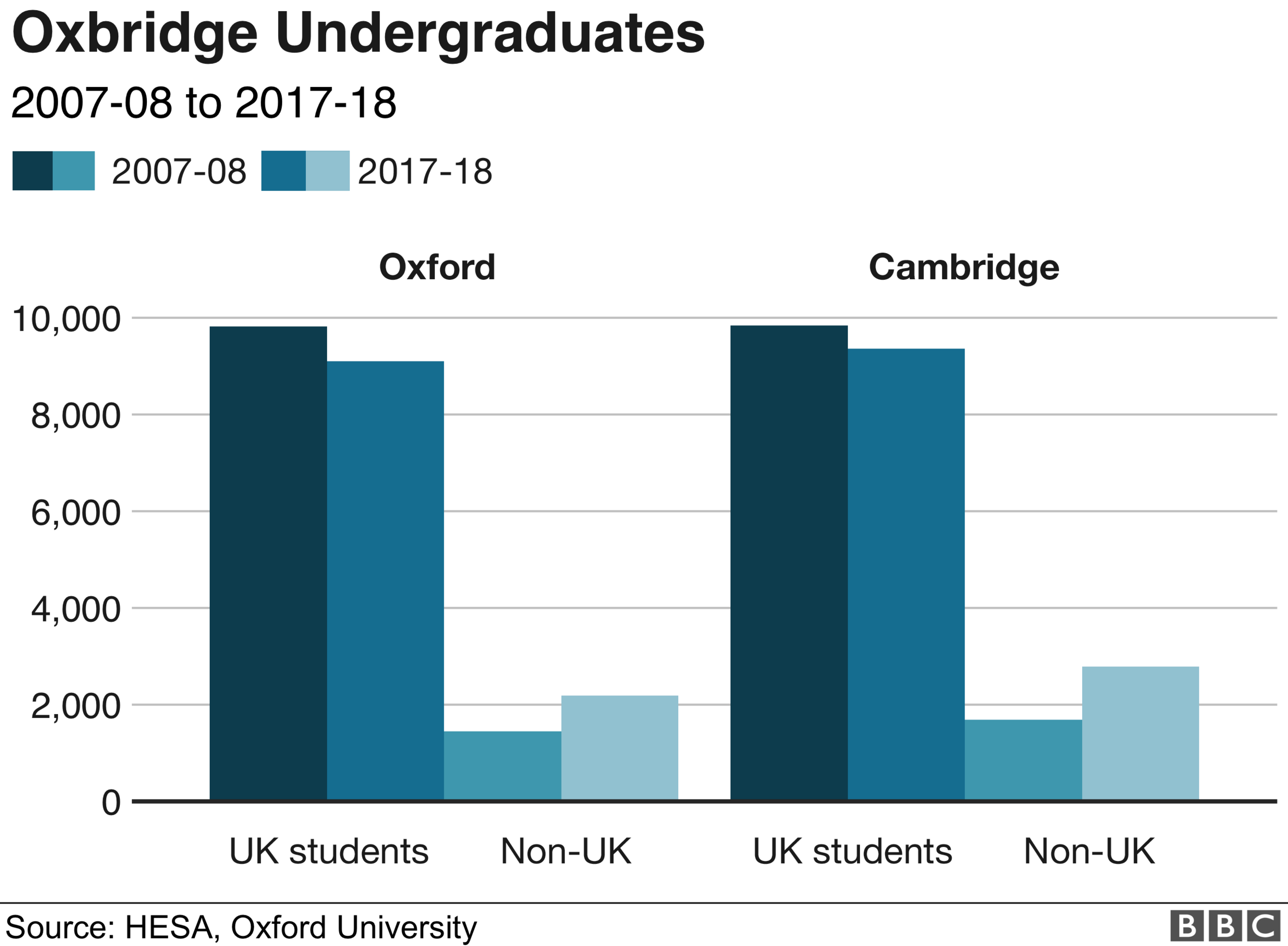
A University of Oxford spokeswoman said the same entry standards applied to all students, UK or overseas, based on "academic talent and ability alone" - and UK applicants had a higher rate of success than those from overseas.
She said: "Places to study are won by demonstrating academic potential through open competition, following the same rigorous application and admission process."
'Sad but inevitable'
A spokesman for the University of Cambridge said: "Applications from international students for undergraduate courses have increased by 56% over the period, which means UK students find themselves in a competitive field."
Nick Hillman, director of the Higher Education Policy Institute, said the reduction in UK student numbers at Oxford and Cambridge was the "sad but inevitable consequence" of the universities becoming more international but not adding places.
"In those circumstances, something has to give and it seems to be places for home students," he says.
Mr Hillman says if the universities do not want to "squeeze out" UK students they need to "bite the bullet and accept more expansion".
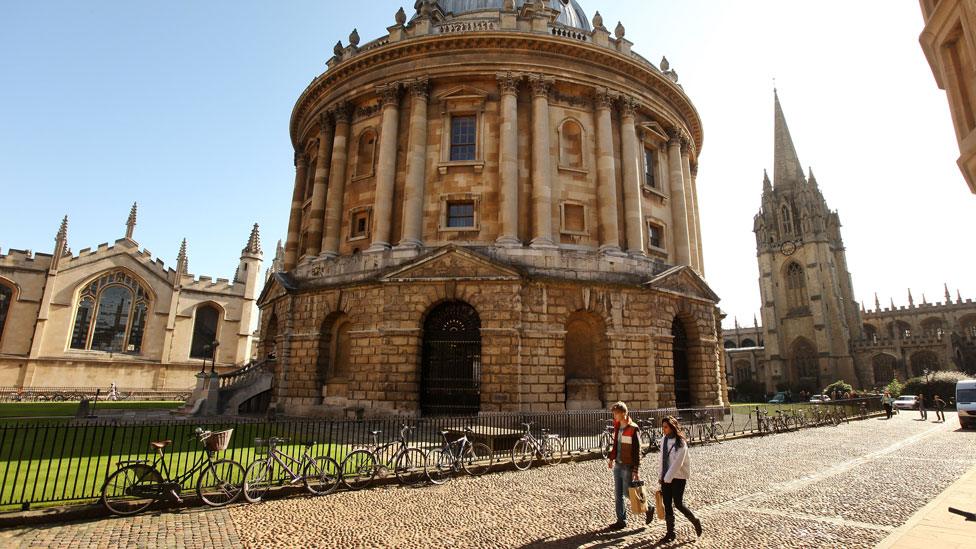
The Hesa figures also show how other leading universities have been expanding their undergraduate intake much more than Oxford and Cambridge.
University College London has expanded by 65%, Bristol by 41% and Exeter by 74%.
Double the places
The Office for Students (OFS), the regulator for higher education, wants more young people from disadvantaged backgrounds to go to university.
But the watchdog says this could require a significant increase in places.
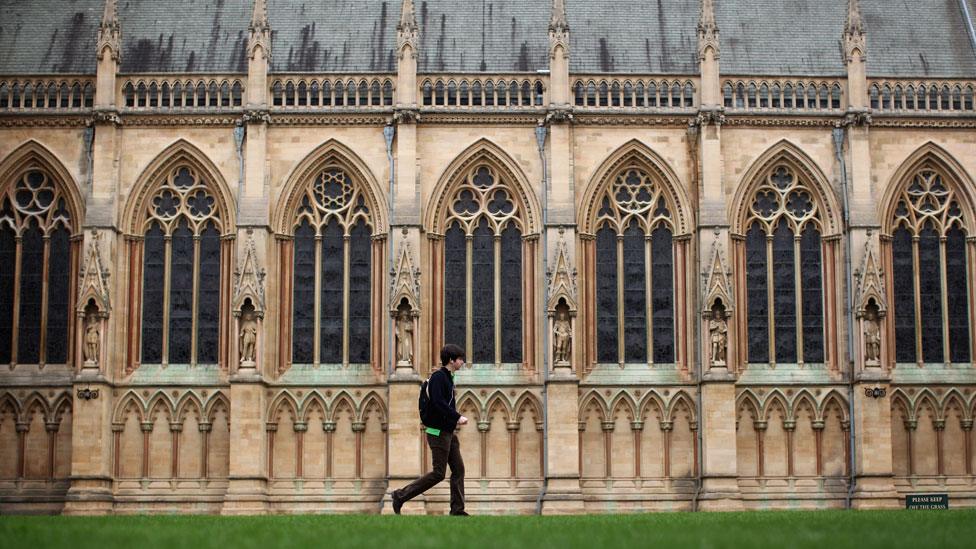
If all young people went to university at the rate of the richest 20%, says the OFS, it would mean having to double the number of places in Russell Group universities.
The Hesa figures also show an even more dramatic drop in adult and continuing education.
In Cambridge, if people taking certificate and diploma courses were included alongside those on undergraduate degree courses, the overall fall in UK students would be about 29% over the decade.
'More open and diverse'
Both Oxford and Cambridge have run extensive outreach projects to attract a wider range of students.
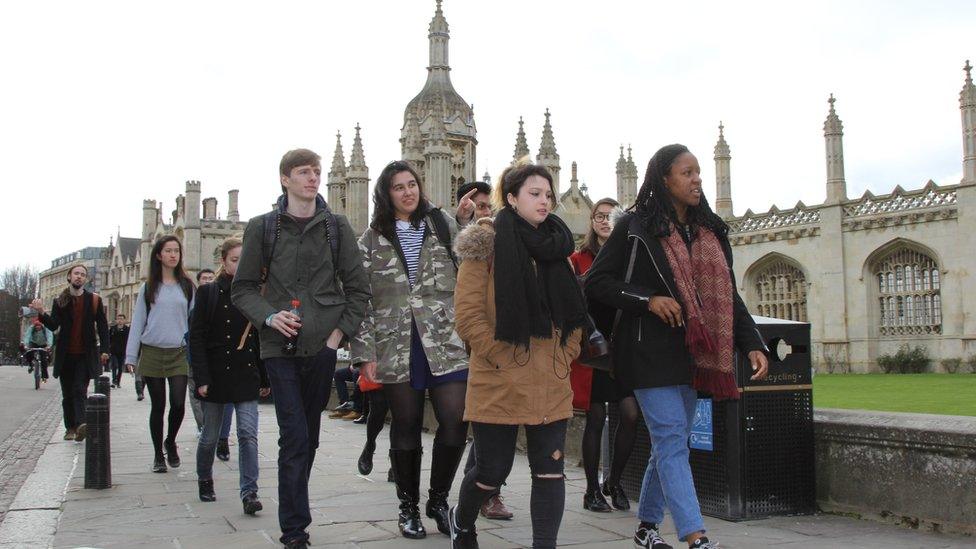
An Oxford spokeswoman said the university was committed to becoming "more open and diverse", with more ethnic minority and students from deprived areas.
"Sustaining excellence requires diversity, and our commitment to achieving this balance, and making Oxford more reflective of modern society, includes reaching out to and selecting, the best talent from all over the world," she said.
A University of Cambridge spokesman said that despite the pressure on places, including from overseas, the university has widened access, including accepting rising numbers of state school pupils.
"The university has made significant progress in all its widening participation measures over the same period. The university accepts students on merit, regardless of their background," he said.
- Published15 January 2019

- Published27 November 2018

- Published2 November 2018
- Published17 December 2018
